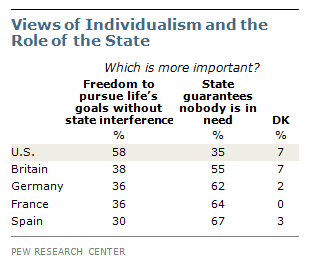Why is the world silent on the constant terrorist attacks on Israel?
From the Chicago Tribune, by Ron Prosor, Israel’s Permanent Envoy to the UN:
Silence. Just silence from the U.N. Silence from Palestinian President Mahmoud Abbas. And silence from major media outlets throughout the world.
Imagine for just a moment if this were happening to cities in, say, Texas. Imagine that the citizens of El Paso, Laredo and San Antonio have to stay inside their homes. Schools are closed, businesses are shut and people have to suspend their lives. Not because of some natural disaster or a nuclear or chemical accident, because groups in Mexico have purchased and are firing thousands of deadly missiles at Texans across the border. Sometimes a school is hit, sometimes a grocery store, and every so often someone is killed.
Imagine a similar occurrence in Seattle, Detroit or Cleveland — with rockets raining in from Canada.
Your reaction to this imagined scenario is, no doubt, incredulity. The very thought of terrorists in another country attacking Americans at random is ludicrous. You know the president would immediately order the U.S. military to respond, root out the terrorists and make sure that the Canadian or Mexican governments clearly understood that this behavior would not be tolerated. The United Nations Security Council would immediately condemn this infringement on a country’s sovereignty and the safety of its citizens. The U.N. charter makes a country’s self-defense as legal as it is logical. This is universally understood.
So if it is natural to be outraged and support the defense against terrorists who attack Texas, or England or Russia or China, why is it not natural to support the same for Israel? Since the beginning of October, more than 70 rockets and missiles have rained down on southern Israel from the Gaza Strip, which remains under the control of the Hamas terrorist organization. Last week, Israel’s densely populated northern towns were hit by rockets fired from Lebanon.
Hamas deliberately fires rockets into the heart of Israel’s major cities, which have exploded on playgrounds, near kindergarten classrooms and homes. Last month, a man was killed when a rocket struck his car on his evening commute home. Many more people have been injured. In the last month alone, more than a million Israelis had to stay home from work and more than 200,000 students were unable to attend school. You don’t read about this because if it’s covered at all, it’s buried in the back pages of newspapers.
Although these horrific attacks should appall good people everywhere, not one word of condemnation has come from the Security Council in the United Nations. Peace activists that regularly criticize my country are silent on this one as well.
Underlying the violence that continues to emanate from Gaza is a deeply rooted culture of incitement. Last month, would-be Palestinian suicide bomber Wafa al-Biss was released from prison as part of an exchange for kidnapped Israeli soldier Gilad Schalit. Al-Biss offered a breathtaking challenge to cheering schoolchildren at her Hamas welcome-home rally. She said, “I hope you will walk the same path that we took and God willing, we will see some of you as martyrs.” Her crime? She tried to kill doctors, nurses and patients by blowing herself up in an Israeli hospital. Luckily, she failed to detonate.
These are the poisonous values that are being fed to the next generation of children in Gaza. When Israel looks at children, it sees the future. When Hamas looks at children, it sees suicide bombers and human shields. If only incitement were confined to Gaza. It also pervades the official institutions of the Palestinian Authority in the West Bank — and many other corners of our region. In schools, mosques and media, generation after generation of children across the Middle East have been taught to hate, vilify and dehumanize Israelis and Jews.
The intolerance all too common in the Middle East finds its way around the world, even entering the halls of the U.N. Today the U.N. is home to a triple standard: one standard for democracies, a different standard for dictatorships and a special, unobtainable standard for Israel. So I pose this ethical question, not from a philosophy course at a great university but based very much in the real world: If it is not OK to fire deadly rockets at the citizens of any of the other 193 member states that make up the United Nations, why is the world silent when the victims are Israelis?



